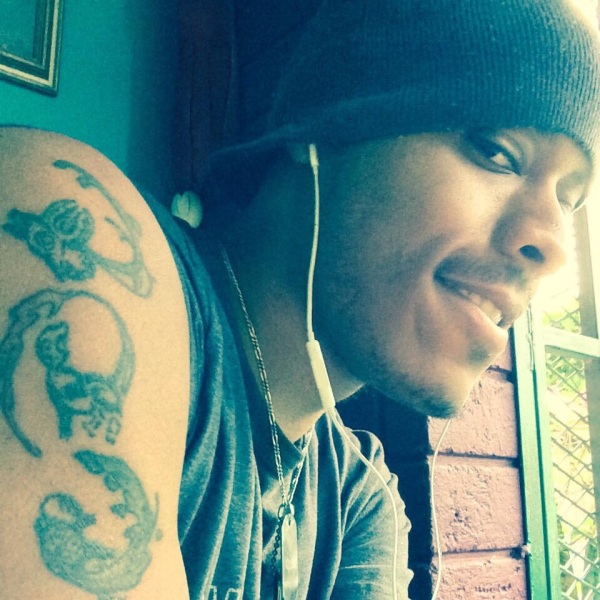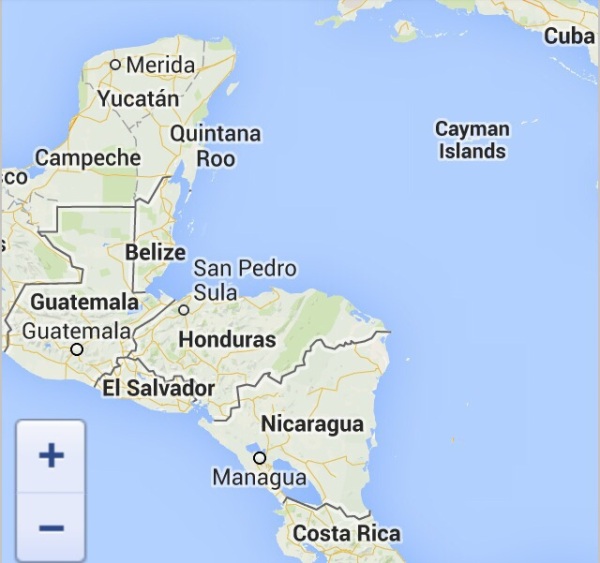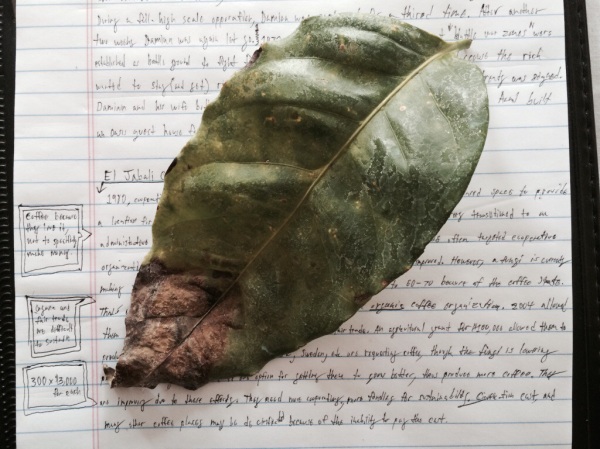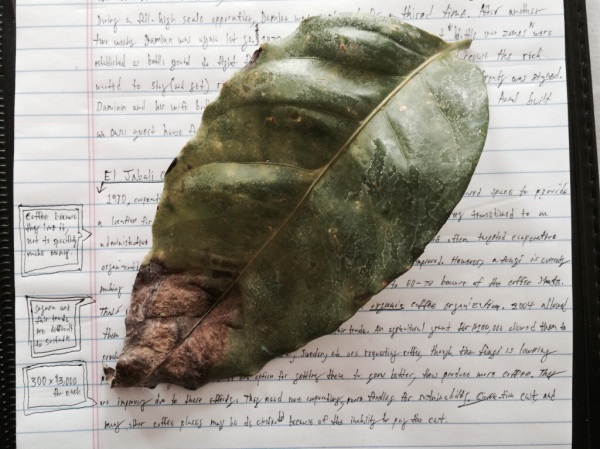My biggest takeaways from this trip are what I learned about myself and what I learned about this country. This last post will talk about these top five areas in great lengths and personal detail.
I learned about an extraordinary country with a powerful, historic background. What’s read in some textbooks, portrayed in the media, and understood based on stereotypes and assumptions are NOT an accurate representations of a country, let alone it’s individual citizens. The opportunity to hear El Salvador’s earliest history from its natural Mayan/Aztec relations to the modern Spanish colonization, personal testimonies about the Civil War that lasted for 12 years and the part the United States played in it, detailing the geographic issues such as mudslides, earthquakes, and volcanos, and conversations about the two political parties (FMLN & ARENA) has given me so much knowledge, and I am confident that studying abroad in El Salvador was the greatest way to convey this as opposed to from a class, a textbook, or the internet. Central America is filled with many other countries, and learning about the small country of El Salvador and its undeniable influence and presence globally was phenomenal. I will now look at the world differently, question injustices, support community-grounded businesses like I did in El Salvador, aim to be resilient like the citizens of this country, and moreso frame my lifestyle around friendships, cooperation, honesty, and soildarity.
I learned that Higher Education and Student Affairs is where I truly belong as a practitioner. It is often not easy to truly find what your internal drive is–the set of actions, activities, and external environment that gives you the upmost satisfaction and fulfillment. My years as an orientation leader, campus activities programmer, resident assistant, ΟΔΚ executive board member, teaching a studies skill class to freshman students and other work/volunteer experience in student affairs has given me a type and level of fulfillment I cannot quite put into words. Working with college students is such a privilege because these are the individuals readying themselves to enter society, the workforce, and possibly change the world, and if I can impact the learning, growth, career direction, and/or convey the value of education and knowledge, then that is my intentional contribution to the world I enjoy and can give. As a social worker and classmate of mine astutely said: “One person may not be able to change the world, but you can change the world of one person.” Regarding micro, macro, and mezzo changes (small, large, and medium changes respectively) my path of higher education has also granted me the knowledge, skills, and awareness of a researcher. My official title is Research Analyst in Teacher Education. And because many policies and laws dictate the operations in both higher education and social work realms, adequate evaluation and assessment of these policies and laws are needed to ensure the best interest to those affected by them are intended and implemented.
I learned about my personality, habits, interest, motivations, and how these traits affect different environments and settings. I’m a straight, cis male. I’m an extrovert. I’m an artist. I’m a gamer. I’m a researcher. I’m a risk taker. I have aspects of a geek and hipster. I work in Higher Education. I’m a trend setter. I value innovation. I’m inquisitive. I’m impulsive. I’m a writer. I’m a student affairs practitioner. I’m easily bewildered. I’m compassionate. I’m appropriately sensual. I’m a mentor. I’m a logician. I can be somewhat smug. I’m witty and comical. I’m determined. All of these aspects make up Mario Lee Adkins, and even though I have a twin brother, there is no one like MLA. At this point in my professional life, I am going to be working with many different people, making ethical decisions that could affect many, and directly influencing others in various ways. At this point, I want to fully know and embrace my true self and calculate how this meshes with others, what traits I may have to heighten and what traits I may have to tone down depending on the circumstances. I think of myself (my before-mentioned traits) as puzzle pieces where all the pieces are present and they all fit together, yet aren’t all pieced together yet. As I grow older, the pieces come together piece by piece, I learn which pieces fit together, my favorite pieces, pieces I’m not too fond of, yet are apart of me anyway, and reevaluating the meaning or worth of a piece. As a professional, I want to be able to present this competed puzzle of me and use this self-actualized persona to positively impact and help others. Though for now, I will used the pieces I know how to use best and continue to be open to learning and having new experiences. As Sister Peggy O’Neall said on this trip: “The best professional is someone who has a genuine self. Find yourself, and you’ll find your place.”
I learned about the story of an El Salvadorian child named Axel and the practice of solidarity. During my two-day service work placement, I worked with many kids and they were so much fun to interact and play with. Their innocence was what made the experience so memorable. When I leave this country, I wanted to have at least one genuine tie that kept me connected in a positive and ongoing way. Sponsoring a child’s scholarship through Programa Velasco was perfect. My natural, internal consensus of this decision was one I’ve never experienced before, and for once in my life I could help another person on a level I never thought possible. Axel (who is ironically named after a popular Kingdom Hearts video game character) is a short, energetic, shy, and slightly inquisitive little 2-year-old boy. His birthday is next month in June and from what I’ve heard he’s an excellent artist. I committed to paying about 75% of his preschool/head start tuition for the year. His family qualifies for it based on a financial assessment via the organization. In Axel I see so many puzzle pieces similar to mine, so much potential if given the chance. After I hugged his mother, she thanked me and was tearing up, as was I. I was able to hold him and I knew a good decision was made today and I could positively impact his life. Though just as important, I know he will positively impact and influence mine as well. I have a lot to learn from Axel. I see this not as an act of charity, but one of solidarity. We are two equals helping and learning from one another.
I learned that no matter what I will always have more to learn and it’s not about the destination, it’s about the journey. I have also learned I may have to relearn concepts and information I thought were straightforward but now my perspective is more broaden and heightened. During my flight back to the United States, I sat next to a nutritionalist named Cathy, and we had a long conversation about both our professions. We were both returning from other countries: me from El Salvador in Central America and her from Cayman Islands, which is overseas territory of the United Kingdom (check them both
at the bottom left and upper right respectively). After realizing I truly enjoyed my study abroad experience, Cathy gave me a Cayman Islands dollar, and I was in awe at the new form of currency and quickly gave her $1.25 back, which was the equivalent exchange rate. This nice gesture of hers also sparked something else in me; the notion that more places and knowledge exist and the drive to visit as many places that apply to the higher education and student affairs contributions I want to give to this world. We may live domestically, but the world operates globally. I want to become an individual who fully embraces this and live up to the greatest, constructive, and authentic potential possible to support my values and profession. This study abroad trip to El Salvador has positioned me along this path.











